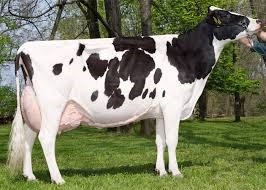Magnesium Deficiency in Livestock

Magnesium Deficiency, known as Grass Tetany or Hypomagnesemia, is a serious metabolic disorder in livestock that primarily affects cattle grazing on lush, rapidly growing pastures. Magnesium is crucial for nerve and muscle function, and its deficiency can lead to severe health issues. This guide provides an overview of Grass Tetany, including affected species, symptoms, prevention, and treatment strategies.
What It Is
Grass Tetany occurs when livestock experience a deficiency in magnesium, typically during periods when they are grazing on lush, rapidly growing pastures. Magnesium is important for maintaining good nerve and muscle function. When levels of it drops too low, it can lead to muscle tremors, convulsions, and in severe cases, death. This condition is also influenced by the calcium-to-magnesium ratio in the diet and the availability of magnesium in forage.
Species Affected
- Cattle: Grass Tetany most commonly affects cattle, particularly dairy cows and beef cattle, that are grazing on lush, high-potassium pastures.
- Other Livestock: While less common, other grazing species such as sheep and goats can also be affected under similar conditions.
Symptoms
Symptoms of Grass Tetany can vary but generally include:
- Muscle Tremors: Involuntary muscle contractions or tremors, often noticeable in the limbs or body.
- Convulsions: Severe, uncontrolled muscle contractions or seizures.
- Staggering and Incoordination: Difficulty in movement, unsteady gait, or stumbling.
- Excitability: Increased nervousness or agitation.
- Increased Respiration Rate: Rapid breathing due to muscle and neurological disturbances.
- Death: In severe cases, the condition can lead to sudden death if not promptly treated.
These symptoms typically appear during periods of high pasture growth, when magnesium levels in the diet are insufficient.
Prevention Strategies
Preventing Grass Tetany involves ensuring adequate magnesium intake and managing pasture conditions:
- Magnesium Supplementation:
- Mineral Supplements: Provide magnesium supplements in the form of mineral blocks or loose minerals. Supplements should be available to grazing cattle at all times, especially during high-risk periods.
- Magnesium-Enhanced Feed: Include magnesium in concentrated feed or supplements to ensure adequate intake.
- Dietary Management:
- Balanced Ration: Formulate rations that include sufficient magnesium along with other essential minerals. Ensure a proper calcium-to-magnesium ratio in the diet.
- Forage Management: Supplement magnesium in the diet during periods of high pasture growth or when grazing on lush, high-potassium forages.
- Pasture Management:
- Reduce Potassium Levels: Manage potassium levels in pastures as high potassium can interfere with magnesium absorption. Use soil testing and appropriate fertilization practices to control potassium levels.
- Pasture Rotation: Rotate pastures to allow recovery and reduce the risk of high potassium levels in any one pasture.
- Monitoring and Adjustments:
- Regular Testing: Analyze forage and soil for magnesium and potassium levels to ensure proper balance and adjust feeding practices as needed.
- Observe Grazing Patterns: Monitor cattle for signs of Grass Tetany and adjust feeding or supplementation practices accordingly.
Treatment Strategies
Prompt treatment of Grass Tetany is crucial to prevent severe health outcomes:
- Magnesium Supplementation:
- Intravenous Magnesium: Administer magnesium sulfate or magnesium chloride intravenously for immediate relief in severe cases. This should be done by a veterinarian to ensure proper dosage and administration.
- Oral Magnesium: Provide oral magnesium supplements or solutions, such as magnesium oxide or magnesium sulfate, to affected animals.
- Supportive Care:
- Hydration and Nutrition: Ensure that affected cattle have access to fresh water and a balanced diet. Provide additional feed or supplements as needed to support recovery.
- Monitoring: Continue to monitor the condition of treated animals to ensure recovery and prevent relapse.
- Veterinary Assistance:
- Professional Care: Consult a veterinarian for a comprehensive evaluation and treatment plan, particularly in severe or complicated cases.
By implementing these prevention and treatment strategies, you can effectively manage magnesium deficiency and Grass Tetany in your cattle, enhancing their health and productivity.
For more information and support on livestock health and nutrition, visit LivestockWellness.com.